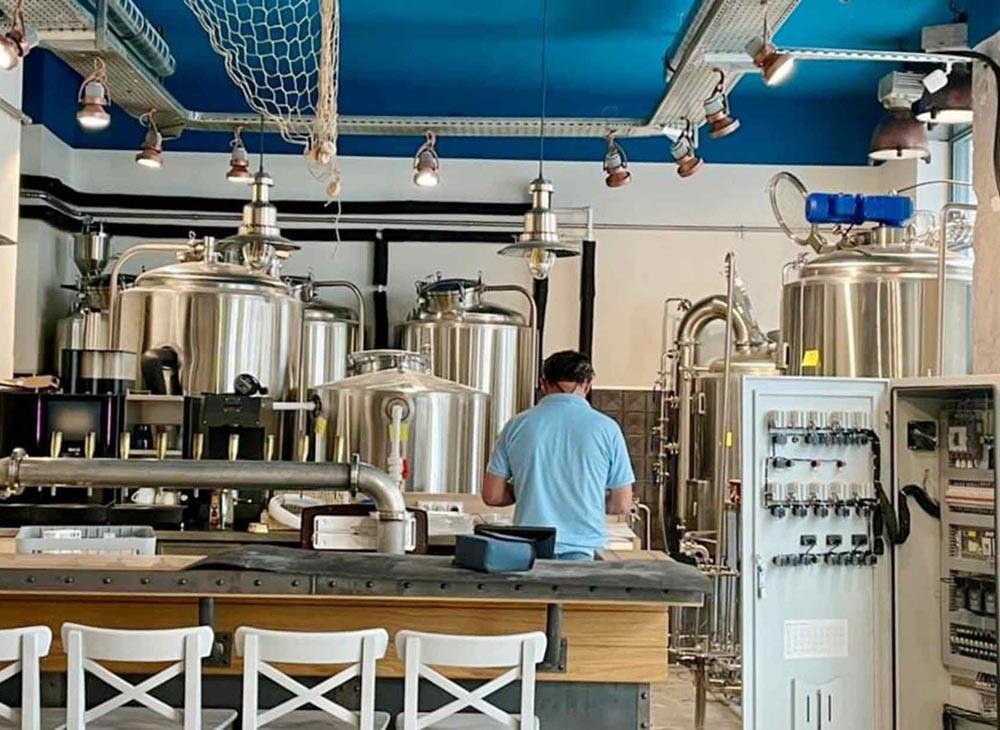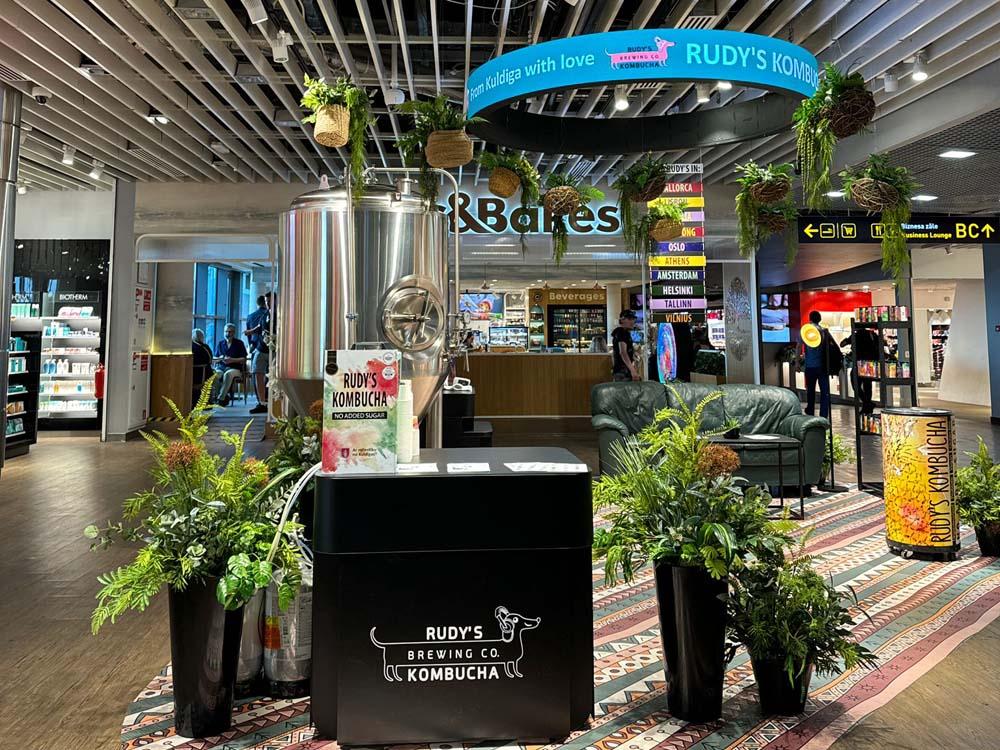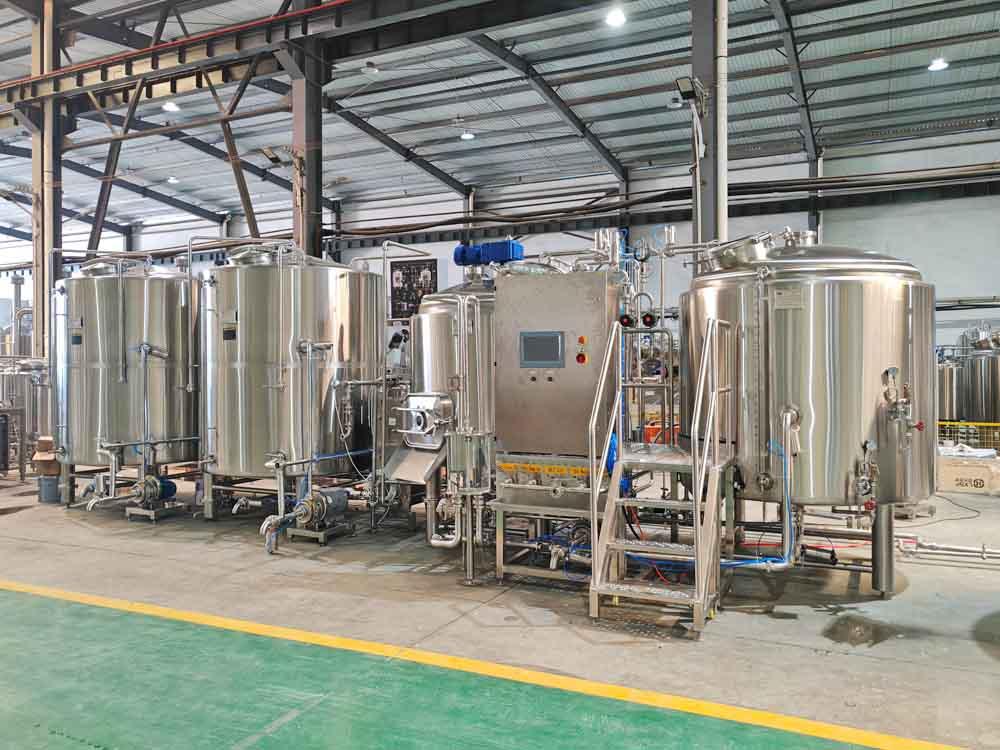How to Open a Taproom in a New Market
- Dec 29, 2021
- 75
- tiantai
From location logistics to public relations advice, brewery owners share their best practices
As an increasing number of breweries expand their sales and marketing efforts by dropping taprooms into cities, states, and countries farther and farther from home, questions arise over how best to integrate them into a new community. Because even the best-intentioned breweries have been accused of carpetbagging and diluting the earning potential of their homegrown competitors, SevenFifty Daily spoke with brewers who’ve made moves like these and asked them to share their best practices for blending in while standing out. Whether you’re opening your first taproom, or a satellite taproom in a new market, these tips will help set you up for success.

1. Consider logistics when choosing locations.
“Strategize your expansion in concentric circles when possible, rather than with [random] satellite locations,” says Gregg Frazer, the vice president of hospitality for Stone Brewing, a brewery based in Escondido, California, that placed almost all of its 12 World Bistro & Gardens, as well as other outposts, around Southern California before expanding outward to Napa County, Richmond, Virgina, Berlin, and Shanghai. Frazer explains that it’s easier and cheaper to open and manage multiple operations when materials can be shipped and supervisors can travel between clustered sites. “This type of expansion allows for better oversight and control of all hospitality outlets,” he says, “which can ultimately provide a more consistent guest experience.”
2. Immerse yourself in your new neighborhood.
Before Thirsty Monk, a brewery and pub based in Asheville, North Carolina, opened brewpubs in Denver and Portland, Oregon, the owner, Barry Bialik, scouted locations by immersing himself in prospective neighborhoods. In Denver he stayed at an Airbnb within walking distance of a potential property, buying morning coffee, meals, and late-night snacks in the area and talking—and listening—to as many bartenders, servers, managers, and patrons as possible.
The goal was to ensure that Thirsty Monk would be a good fit and to then find ways to make it an ideal fit. In general, Bialik says, “I ask servers and bartenders where they go for relaxation and why. I talk to patrons at the neighborhood bars and restaurants and see if they seem like they would be the kinds of people who would appreciate our taproom. And I listen to what they like and don’t like about other breweries and pubs in their area.”
3. Don’t try to replace or re-create the local culture.
Striking the right balance between corporate identity and local personality is critical to establishing the ambience of a satellite outpost—and earning acceptance from the local community. When Mike Stevens, the cofounder of Founders Brewing in Grand Rapids, Michigan, opened his first out-of-market taproom, in Detroit, he decided not to require the same dress code, customer greetings, or overhead music as in his original brewery. “I think it’s best to allow the new location to find its own groove,” he says. “That way there’s better buy-in and better execution because the staff and the customers are helping to create it.”
Similarly, Mark Edelson, the cofounder of Iron Hill Brewery and Restaurant in Newark, Delaware, which has more than a dozen locations, put humility on the menu when he opened a Greenville, South Carolina, brewpub—his first outside Delaware, Pennsylvania, or New Jersey. “We wanted to come in here and not be Yankees, so we had to take ‘Carolina pork’ off the menu,” he says. “We’re not going to come to South Carolina and tell people how to make pork. But we did bring on Philly cheesesteak egg rolls.”
4. Hire a market rep.
A full-time market rep can help reinforce brand messaging outside a remote taproom with events, samplings, and local partnerships. Reps also work closely with distributors and—in international markets—importers. Samantha Itzkovitz, the brand marketing director of Brooklyn Brewery in New York City, which has partnerships with brewery taprooms in Europe and, soon, Tokyo, says, “The brand ambassadors either already are or very quickly become active members of their craft beer communities and help translate our brand—literally, in some cases—to people in their respective countries, keeping us grounded not just at home but very far away from home.”
5. Enlist a local public relations firm.
Hiring a local brewer, service staff, and sales reps can go a long way toward establishing cred, but that goodwill can evaporate when everything else is run from the mothership—or through existing contractors. A boots-on-the-ground media relations firm, for instance, doesn’t need time to activate its contacts and can advise on practices that will harmonize locally and those that may not.
Chad Melis, the cofounder of Turn It Up Media in Lyons, Colorado—and a former marketing director for Oskar Blues Brewery and its brewery collective, CANarchy, which between them run dozens of locations—explains, “Local relationships are [usually] strong, and there is an earned knowledge to ensure you are aligning your messaging to the correct outlet. With PR from outside, the messaging can be slightly off and can have a ‘red flag’ effect of being an outsider and not truly understanding the market.”
Tara Nurin is the beer and spirits contributor to Forbes, the drinks columnist for New Jersey Monthly, a cohost of the What’s on Tap TV show, and a writer for publications like Food & Wine, Wine Enthusiast, Vice Munchies, and VinePair. She is a BJCP-certified judge, teaches a for-credit university beer class, and leads beer seminars for institutions like the Smithsonian. The Camden, New Jersey, homeowner has won two first-place awards from the North American Guild of Beer Writers, founded the state’s first beer education group for women, and volunteers as the archivist for the Pink Boots Society.
As an increasing number of breweries expand their sales and marketing efforts by dropping taprooms into cities, states, and countries farther and farther from home, questions arise over how best to integrate them into a new community. Because even the best-intentioned breweries have been accused of carpetbagging and diluting the earning potential of their homegrown competitors, SevenFifty Daily spoke with brewers who’ve made moves like these and asked them to share their best practices for blending in while standing out. Whether you’re opening your first taproom, or a satellite taproom in a new market, these tips will help set you up for success.

1. Consider logistics when choosing locations.
“Strategize your expansion in concentric circles when possible, rather than with [random] satellite locations,” says Gregg Frazer, the vice president of hospitality for Stone Brewing, a brewery based in Escondido, California, that placed almost all of its 12 World Bistro & Gardens, as well as other outposts, around Southern California before expanding outward to Napa County, Richmond, Virgina, Berlin, and Shanghai. Frazer explains that it’s easier and cheaper to open and manage multiple operations when materials can be shipped and supervisors can travel between clustered sites. “This type of expansion allows for better oversight and control of all hospitality outlets,” he says, “which can ultimately provide a more consistent guest experience.”
2. Immerse yourself in your new neighborhood.
Before Thirsty Monk, a brewery and pub based in Asheville, North Carolina, opened brewpubs in Denver and Portland, Oregon, the owner, Barry Bialik, scouted locations by immersing himself in prospective neighborhoods. In Denver he stayed at an Airbnb within walking distance of a potential property, buying morning coffee, meals, and late-night snacks in the area and talking—and listening—to as many bartenders, servers, managers, and patrons as possible.
The goal was to ensure that Thirsty Monk would be a good fit and to then find ways to make it an ideal fit. In general, Bialik says, “I ask servers and bartenders where they go for relaxation and why. I talk to patrons at the neighborhood bars and restaurants and see if they seem like they would be the kinds of people who would appreciate our taproom. And I listen to what they like and don’t like about other breweries and pubs in their area.”
3. Don’t try to replace or re-create the local culture.
Striking the right balance between corporate identity and local personality is critical to establishing the ambience of a satellite outpost—and earning acceptance from the local community. When Mike Stevens, the cofounder of Founders Brewing in Grand Rapids, Michigan, opened his first out-of-market taproom, in Detroit, he decided not to require the same dress code, customer greetings, or overhead music as in his original brewery. “I think it’s best to allow the new location to find its own groove,” he says. “That way there’s better buy-in and better execution because the staff and the customers are helping to create it.”
Similarly, Mark Edelson, the cofounder of Iron Hill Brewery and Restaurant in Newark, Delaware, which has more than a dozen locations, put humility on the menu when he opened a Greenville, South Carolina, brewpub—his first outside Delaware, Pennsylvania, or New Jersey. “We wanted to come in here and not be Yankees, so we had to take ‘Carolina pork’ off the menu,” he says. “We’re not going to come to South Carolina and tell people how to make pork. But we did bring on Philly cheesesteak egg rolls.”
4. Hire a market rep.
A full-time market rep can help reinforce brand messaging outside a remote taproom with events, samplings, and local partnerships. Reps also work closely with distributors and—in international markets—importers. Samantha Itzkovitz, the brand marketing director of Brooklyn Brewery in New York City, which has partnerships with brewery taprooms in Europe and, soon, Tokyo, says, “The brand ambassadors either already are or very quickly become active members of their craft beer communities and help translate our brand—literally, in some cases—to people in their respective countries, keeping us grounded not just at home but very far away from home.”
5. Enlist a local public relations firm.
Hiring a local brewer, service staff, and sales reps can go a long way toward establishing cred, but that goodwill can evaporate when everything else is run from the mothership—or through existing contractors. A boots-on-the-ground media relations firm, for instance, doesn’t need time to activate its contacts and can advise on practices that will harmonize locally and those that may not.
Chad Melis, the cofounder of Turn It Up Media in Lyons, Colorado—and a former marketing director for Oskar Blues Brewery and its brewery collective, CANarchy, which between them run dozens of locations—explains, “Local relationships are [usually] strong, and there is an earned knowledge to ensure you are aligning your messaging to the correct outlet. With PR from outside, the messaging can be slightly off and can have a ‘red flag’ effect of being an outsider and not truly understanding the market.”
Tara Nurin is the beer and spirits contributor to Forbes, the drinks columnist for New Jersey Monthly, a cohost of the What’s on Tap TV show, and a writer for publications like Food & Wine, Wine Enthusiast, Vice Munchies, and VinePair. She is a BJCP-certified judge, teaches a for-credit university beer class, and leads beer seminars for institutions like the Smithsonian. The Camden, New Jersey, homeowner has won two first-place awards from the North American Guild of Beer Writers, founded the state’s first beer education group for women, and volunteers as the archivist for the Pink Boots Society.




